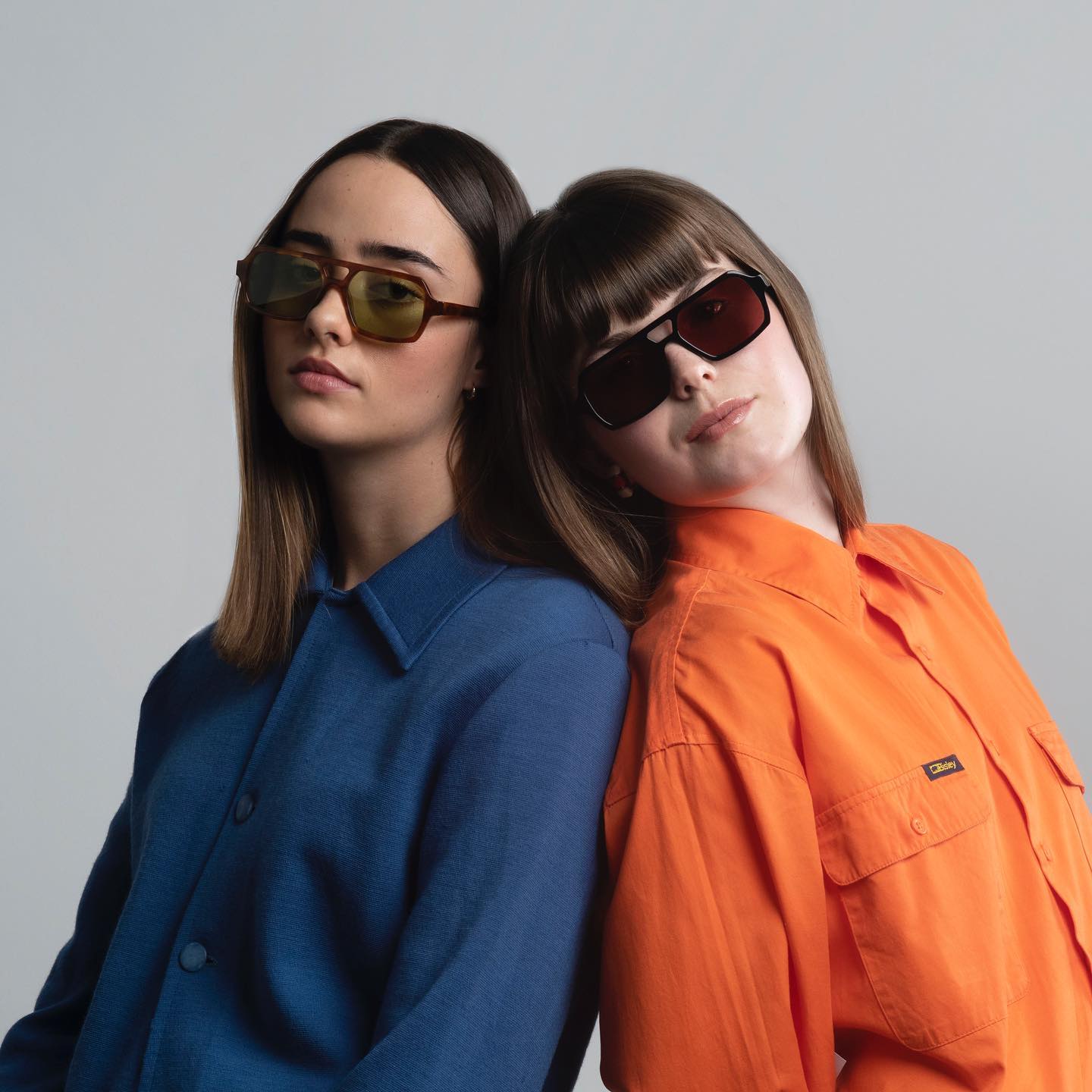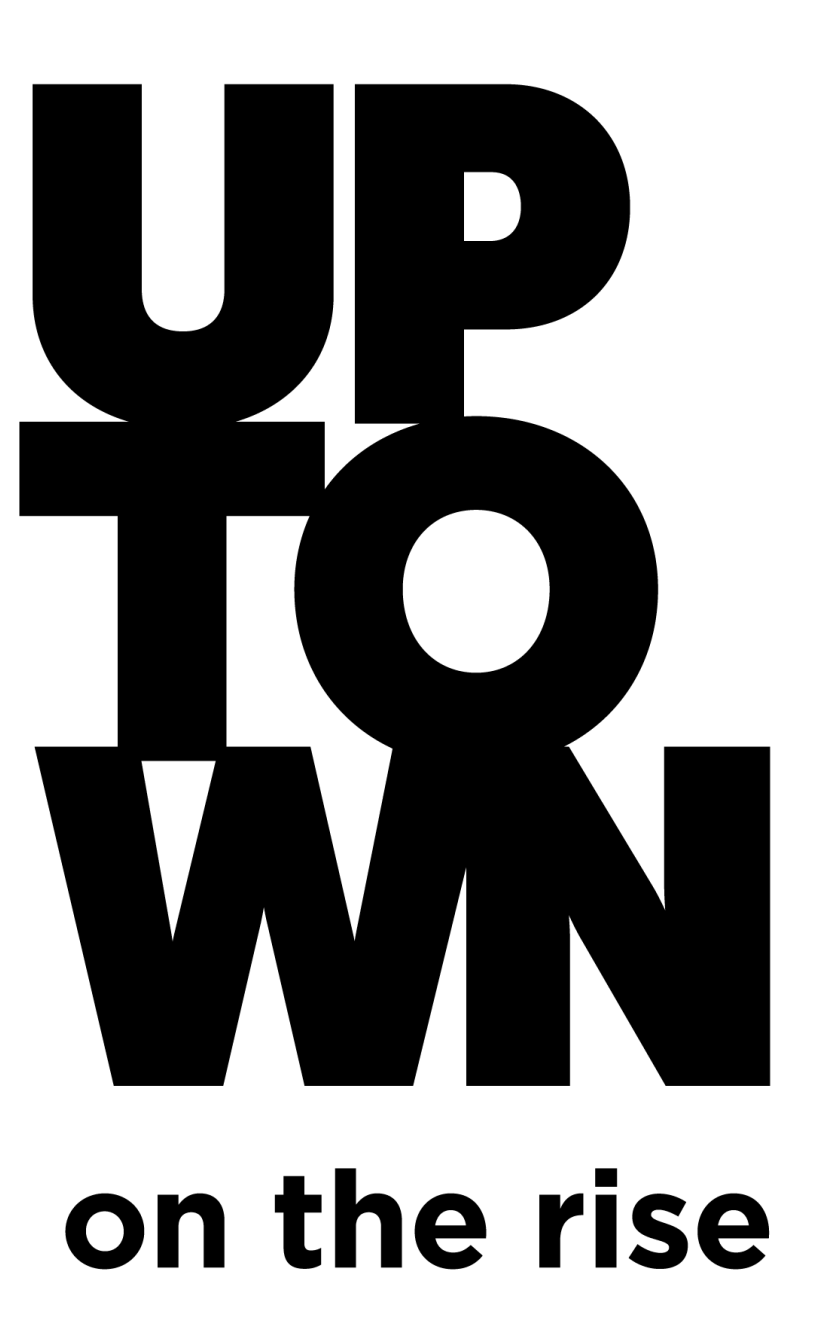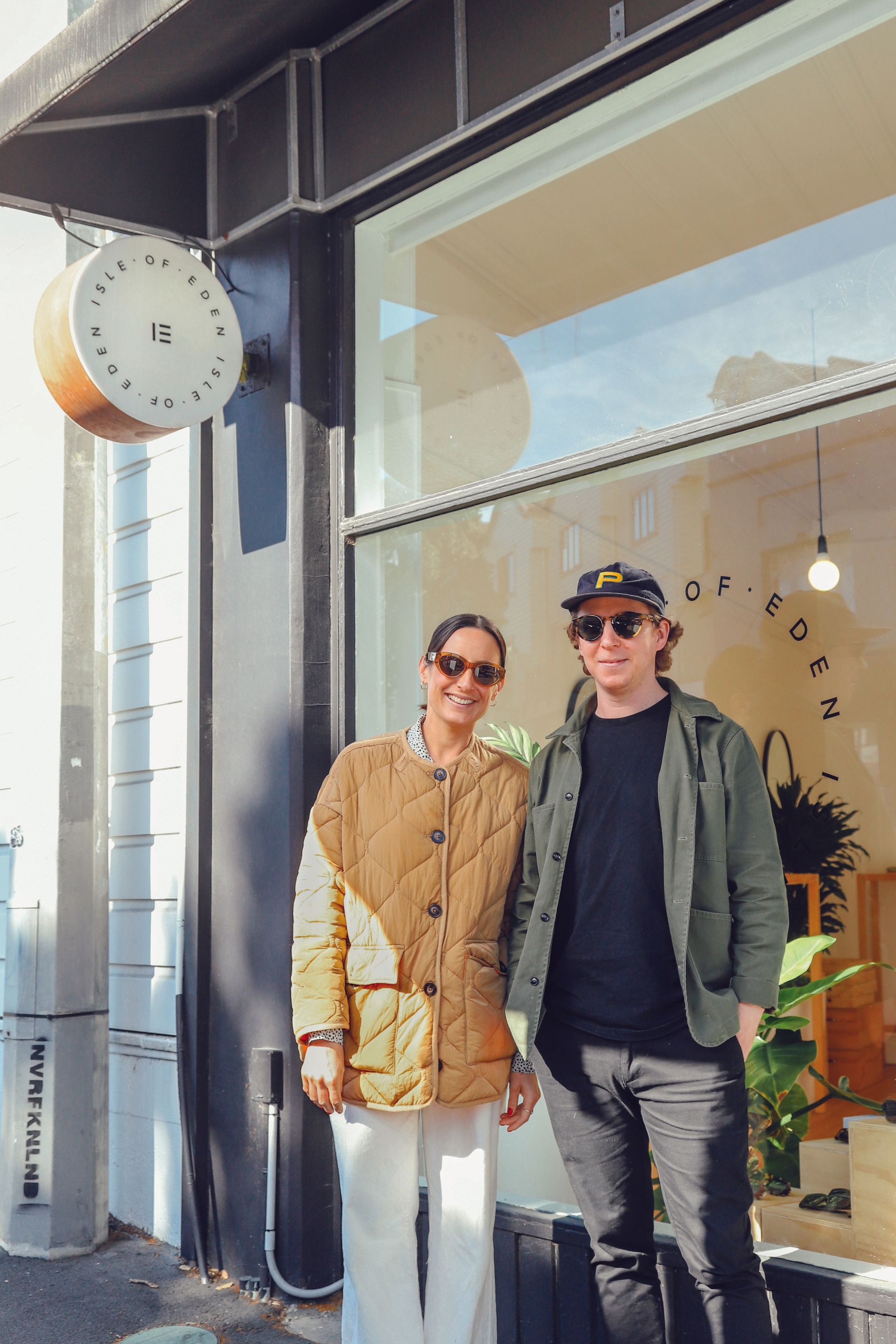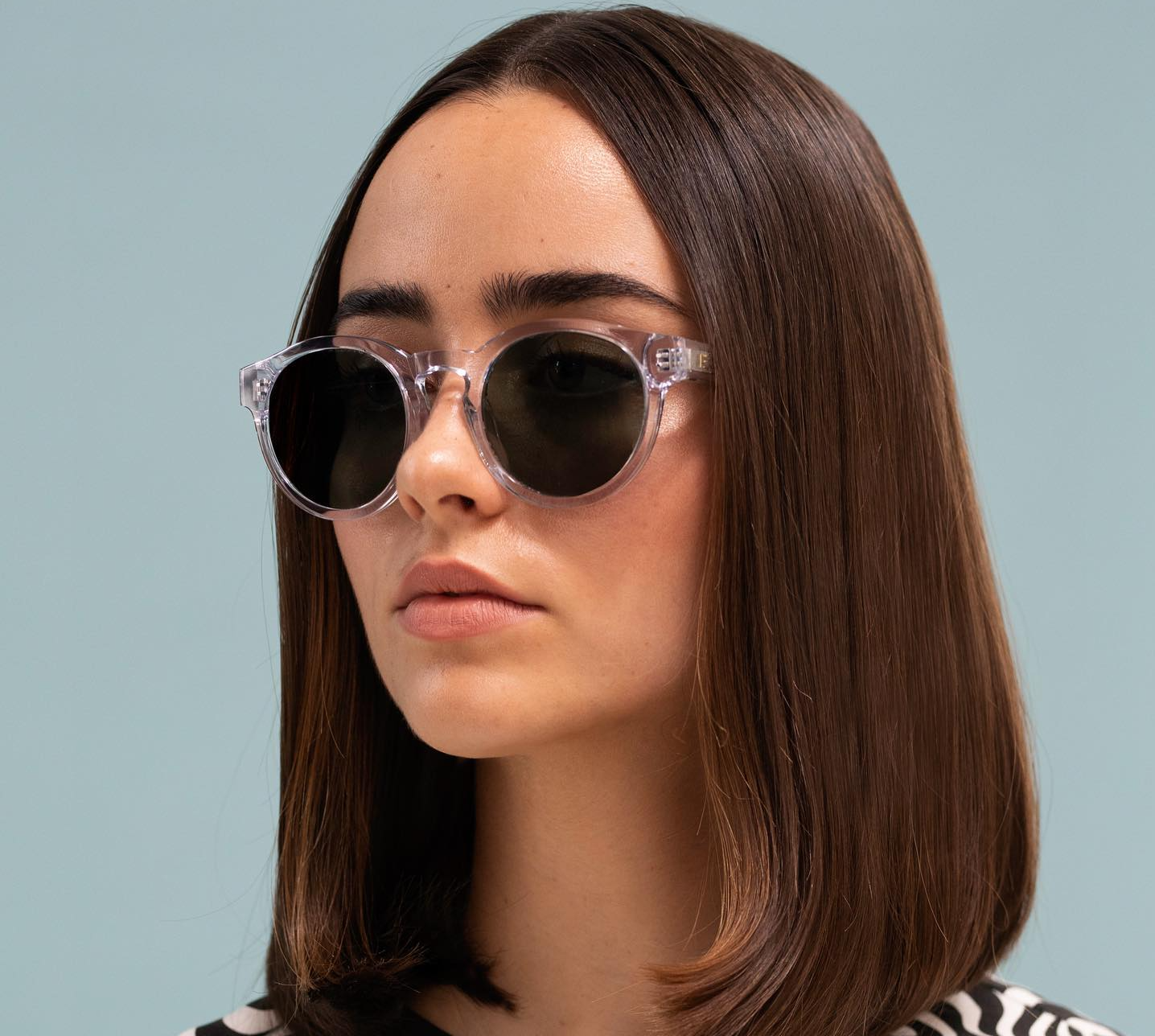
Heavenly Shades
Words: Suzanne McNamara
Nestled next to the Discovery on New North Road is the retail home of Isle of Eden, an independent sunglasses brand created and founded by Kiwis Nelson Rayner and Felina Natoli. Life and business partners, the duo returned in 2018 from a seven-year stint in London to start their business and a family.
Nelson’s background in advertising and design inspired the idea of owning a business that created its own product line. He and Felina were actively searching and the idea for eyewear came from trips home to Aotearoa to enjoy Kiwi summers. “We’d always buy sunglasses coming home and the lack of choice in interesting brands in New Zealand was quite frustrating – the price we had to pay and also the quality that you’d get for your money here.”
This frustration, and a perceived gap in the market, spurred them to investigate creating their own brand of unique sunglasses. It turned out there were plenty of reasons to start a sunglasses brand for the New Zealand market, including value, price, quality and lack of competitiveness with other independents.
But how to go about starting an eyewear brand? The first step was to hunt for the right partners to bring their ideas to reality. Based in London, Nelson and Felina attended trade expos in Milan and Paris, but it wasn’t an easy task.
Felina says day one was pretty overwhelming. “We weren’t getting anywhere and we were really struggling. And then the last day we found a manufacturer and it all fell into place. We are still working with them today.”
First on the list of brand values was quality that is at least on a par, if not better, than other high-quality sunglasses. The next was selling at a fair price, so Kiwis weren’t paying more than they should, and the third was to be as sustainable as possible.
Nelson’s design background meant he has a well-honed eye for detail. Creating a brand, from its identity through to packaging and fit-out of a retail store, is the dream of any good designer.
“I've always worked for myself as a freelancer in advertising and design agencies, so having our own product line was the next step. I was ready and motivated to do something more meaningful when we came back to live in New Zealand to raise our family.”
Naming the brand wasn’t easy either – the couple considered many options, but inspiration came close to home. “I quite like naming things,” says Nelson, “and we wanted something that invoked home and the sustainable story around our product and service. It also just felt right because I grew up in Mt Eden, and the word 'Eden' is associated with other family businesses."
Quality and sustainability go hand in hand, but Nelson and Felina realised they needed to find their difference in the market. “We wanted to be one step ahead of the other brands. So where others use standard lenses, all our frames have high-quality CR-39 polarised lenses,” explains Nelson. Felina emphasises that sunglasses in New Zealand “need to have polarised lenses because of our harsh sun environment and the time Kiwis spend outdoors.”
They also didn’t want their glasses to contain any nasty stuff. The material used in the frames is bio-acetate, which is bio-based and biodegradable, meaning (unlike regular plastic) they don't have petrochemicals. The cellulose is plant-based, made from wood and cotton pulp, and their protective cases are made from recycled leather and natural latex.
Sustainable materials are one thing, but the couple consider that the life cycle of the product is important too. Their sustainable story continues with a repair and upcycle service, which has turned out to also help with marketing the brand.
Repairs have become almost a full-time job for Felina, who also cares for the couple’s children, 9-month Frankie and 3-year-old Sienna, during the day while Nelson manages some London-based design clients and runs the shop.
“When people finish with their glasses they can bring them back, and in exchange for their old pair we give them a discount on a new pair,” says Felina. She explains that some people might have had three summers with their glasses, or may just want a change or to upgrade, so they hand them back, often in perfect condition. “We use all the parts of the old glasses to repair other glasses, or to upcycle them into unique, one-off designs.”
Nelson says they provide value compared to other companies that charge a small fortune for repairs. “We do it for cost price and make sure it's affordable, so people can recycle and repair their glasses.” Upcycling comes from switching out the arms or lenses with different colours – making them unique to the owner.
Affordability is a theme that recurs with Isle of Eden. Even with margins being squeezed by increasing supplier costs, the couple are reluctant to push past their $189 price point. There are plenty of brands that are charging $300-$600 for mass market runs of sunglasses, whereas Isle of Eden produces in small batches so they have good oversight of their quality.


